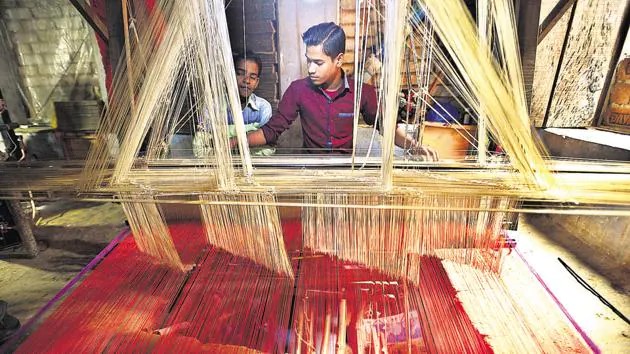Overcoming the Struggles: Challenges in MSME Financing

Micro, Small, and Medium Enterprises (MSMEs) assume a pivotal role in propelling economic growth, nurturing innovation, and generating employment opportunities across economies globally. In India, MSMEs contribute significantly to the country’s GDP and employment generation.
Nevertheless, despite their significance, (MSMEs) frequently encounter numerous obstacles in obtaining access to financing, impeding their growth and sustainability. This article aims to delve into the multifaceted challenges that MSMEs encounter in financing, exploring the implications and potential solutions to address these issues.
Also Read: MSME Definition
Also Read best finance tips
Created By: NKB Kredit
1. Lack of Collateral and Credit History:
One of the primary challenges faced by MSMEs in accessing financing is the requirement for collateral and a robust credit history. Traditional lending institutions, such as banks, often demand collateral as security against loans, making it difficult for MSMEs,
particularly startups and small enterprises, to meet this requirement. Additionally, many MSMEs lack a credit history or financial documentation, further limiting their ability to secure loans from formal financial institutions.
2. Complex and Lengthy Loan Approval Processes:
The loan approval process for MSMEs in India is often bureaucratic, cumbersome, and time-consuming. MSMEs are required to navigate through a plethora of paperwork, meet stringent eligibility criteria, and comply with regulatory requirements, which can significantly delay the disbursement of funds.
Moreover, the lack of transparency and consistency in the loan approval process further complicates matters for MSMEs, leading to frustration and uncertainty.
3. Limited Access to Alternative Financing Options:
While traditional banks remain the primary source of financing for MSMEs financing in India, access to alternative financing options, such as venture capital, angel investors, and crowdfunding, remains limited for many small businesses.
These alternative sources of funding are often more suitable for high-growth startups and innovative ventures, leaving traditional MSMEs with few viable options to raise capital. Furthermore, the lack of awareness and understanding of alternative financing mechanisms further restricts MSMEs’ access to these resources.
4. Seasonal Nature of Business and Cash Flow Challenges:
Many MSMEs in India operate in sectors characterized by seasonal demand fluctuations, such as agriculture, tourism, and retail. The seasonal nature of business poses significant challenges for MSMEs in managing cash flows and servicing debt obligations.
During lean periods, MSMEs may struggle to generate sufficient revenue to meet loan repayments, increasing the risk of default and financial distress. Moreover, the lack of adequate working capital financing exacerbates cash flow challenges for MSMEs, hindering their ability to sustain operations and invest in growth initiatives.
5. Regulatory and Compliance Burden:
MSMEs in India are subject to a myriad of regulatory requirements and compliance obligations, ranging from tax filings to labour laws and environmental regulations. Compliance with these regulations entails additional administrative costs and operational complexities for MSMEs, diverting scarce resources away from core business activities. Moreover, regulatory uncertainty and frequent policy changes further add to the compliance burden faced by MSMEs, creating a challenging business environment.
6. Limited Financial Literacy and Entrepreneurial Skills:
Many MSME financing entrepreneurs lack the requisite financial literacy and entrepreneurial skills to effectively manage their finances and navigate the complexities of the financial system. This lack of awareness and expertise hampers MSMEs’ ability to access financing, evaluate different funding options, and make informed financial decisions. Furthermore, the absence of formal training and support mechanisms for MSME entrepreneurs exacerbates these challenges, limiting their capacity to grow and thrive in the competitive business landscape.
CONCLUTION :
In conclusion, MSME financing in India is fraught with numerous challenges, ranging from the lack of collateral and credit history to high-interest rates, complex loan approval processes, and regulatory burdens. Addressing these challenges requires a concerted effort from policymakers, financial institutions, industry stakeholders, and MSME entrepreneurs alike. Initiatives aimed at enhancing financial inclusion, streamlining loan approval processes, promoting alternative financing mechanisms, and improving financial literacy among MSMEs are crucial steps towards creating a conducive environment for MSME growth and development. By overcoming these challenges, MSMEs can unleash their full potential as engines of economic growth and job creation in India.


